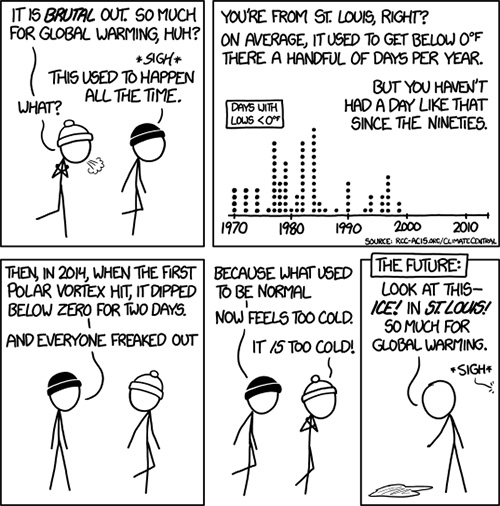The elephant in the room as far as indoor farming goes is light. You need energy for light production and where is that energy coming from? So suddenly you need enough energy to power food production as well as the rest of our technology.
Traditional farming is extremely energy intensive.
LED lights are very energy efficient. They can be powered or augmented with green energy (solar, wind, etc).
So what you're going to burn more fossil fuels to make climate worse so you can continue to grow crops in areas made inhospitable to agriculture because you were burning fossil fuels? :dizzy:
There has always been, and there always will be, areas that are inhospitable to agriculture. Alternative farming methods make it possible to grow crops in areas that are already inhospitable to agriculture.
Outdoors, light is free, it's called the sun. Now you can build greenhouses, but the glass cuts down on the intensity of the sun considerably and you can have a real problem with heat buildup if you try to do it in the summertime. This usually means you have to shade your greenhouse, run swamp coolers and fans (more energy needed).
We're not talking exclusively about greenhouses here. Some methods of hydroponics and aquaponics are open-air systems. Other forms of vertical farming are completely enclosed.
Sunlight includes spectra of light that actually impede plant growth, but energy-efficient LED lights have been optimized for plant growth. Also, researchers have found that altering the day-night cycle further encourages plant growth.
Also take into consideration the various extremes of weather that destroy crops (excessive rain, drought, frost, etc). These problems become irrelevant with enclosed systems.
The reason greenhouses are used in most cases is to produce food locally in the winter time (yes there is still winter with climate change) or to extend the season in cold areas. So greenhouses are generally great for cold areas, not so much hot ones.
There will always be traditional farming. Alternative farming methods are a partial solution, not necessarily a whole one.
The biggest problem as far as we are concerned may be that these areas may not be within the USA (or western europe). Also agricultural output as a whole may go down due to erratic weather conditions.
All the more reason for us to consider these alternative farming methods.

